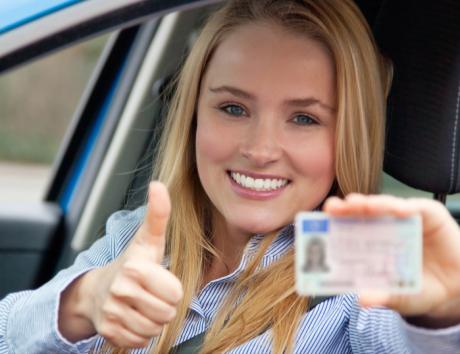Mentioning Your Driving Licence on Your CV
Do you have a driver’s licence and if so, should you mention the fact in your CV? Generally, it’s not necessary to refer to your driving licence or lack thereof, unless it’s directly relevant to the job you’re applying for. However, in some situations, your driving licence may give you an edge over other candidates.

Including a driver's license on a resume is generally unnecessary unless the job specifically mandates a valid driver's license. Positions like delivery drivers or sales representatives, who often need to travel for client meetings, may require a driver's license.
However, it can provide an edge in today's competitive job market. With a growing number of applicants from different locations, showcasing your driving license can be beneficial. This is especially true if you reside far from the company or in an area with limited public transportation options, as it demonstrates your mobility and reliability for positions that may require travel or client meetings
If you don't have a driving licence
If you don’t have a driving licence, then, you needn’t refer to that fact in your CV. After all, your CV is intended to highlight the positive and not focus on the negative.
However, if you’re taking driving lessons or you’re taking your driving test soon and you think that this might help your application, then it can’t hurt to mention this in your CV.
For jobs where a driving licence is a requirement of the job, only state that you have a driving licence if you have already passed your test. Such jobs also often require a minimum of one year’s driving experience, so you could also mention the number of years you’ve been driving:
Driving licence: category B (one year’s driving experience)
Some companies and the army may even cover the cost of driving lessons if it’s essential that you need to be able to drive; check details with the relevant employer.
If you have a driving licence
If you’re in possession of a driving licence and you want to highlight this fact in your CV, there are a number of points to consider:
- The type of driving licence
For jobs where driving is an essential requirement (e.g. ambulance driver, delivery driver, courier, police officer, taxi driver, etc.), you’ll need to specify the type of vehicle that your licence enables you to drive.
To be considered a suitable candidate for such jobs, it’s important that you include the correct category or class of your driving licence (s) as any incorrect information may disqualify you from the application process.
- Car ownership
For certain jobs, it can be advantageous to mention that you own a car. For instance, if the job calls for shift work, requires you to be on call or is located in a remote area. In such instances, the employer may want to be reassured that you’ll still be able to make it into work at short notice, even if the public transport connections leave a lot to be desired.
Some companies may even make a company car available to you — you could ask the employer about this, but only after you’ve been made an offer and not before to avoid giving the impression that you’re only interested in the benefits the company has to offer you.
If you don’t own a car, it’s not necessary to mention anything about your lack of car ownership, of course. In most cases, this information won’t be required.
The different licence categories for each country
When mentioning your driving licence in your CV, it’s important to specify the category of your driving licence, especially if the role requires you to drive a certain type of vehicle. You do this by indicating the letter or number of the driving licence category:
Ireland
- A – motorcycles
- B – cars
- BE – cars with a trailer
- W — work vehicles
- C — trucks and caravans
- CE — trucks and caravans with trailers
- D — buses
- DE — buses with trailers
- D1 — minibuses
- D1E — minibuses with trailers
For further information, visit the National Driving Licence website.
New Zealand
- Class 1 — cars, motorhomes, caravans
- Class 2 — bus or truck with a maximum weight of 18,000 kg
- Class 3 — truck and trailer with a maximum weight of 25,000 kg
- Class 4 — bus or truck with a weight of more than 18,,000 kg
- Class 5 — truck and trailer with a weight of more than 25,000 kg
- Class 6 — motorcycles
For more information, visit the NZ Transport Agency website.
South Africa
- A – motorcycles
- B – cars, minibuses, buses and goods vehicles
- B (b) — ambulances
- B (5) — tractors
- B (7) — forklifts
- C — buses and goods vehicles with a weight of more than 16,000 kg
- EB — buses, trams and trains with a maximum weight of 3,500 kg
- EC — buses, trams and trains with a weight of more than 3,500 kg
Further information can be found on Wikipedia.
United Kingdom
- A – motorcycles
- B – cars with a maximum permissible weight of 3,500 kg
- BE – cars with a trailer not exceeding 3,500 kg
- W — work vehicles
- C — trucks and caravans
- CE — trucks and caravans with trailers
- D — minibuses with no more than 16 passenger seats
- DE —mini buses with trailers
- D1 — buses with more than 8 passenger seats
- D1E — buses with trailers
For more information on the different licence categories in the UK, visit GOV.UK.
How to mention your driving licence in your CV?
There are a few ways to do include details of your driving licence in your CV, depending on the how relevant it is for the job application. This also depends on the CV template you are using:
- In the contact details section
Add details of your driving licence after your name, address, identity number (South Africa), email address, phone number and your LinkedIn URL:
Driving licence: category/class/code + (the number or letter which will depend on your country of residence)
If you have several driving licences and it’s relevant to draw attention to them, add the letters or number of the categories, e.g.
Driving licence: B, C (again, this will depend on your country of residence)
If it’s relevant for the position to state that you have a car because the job requires a long commute, for instance, then mention this:
Driving licence B (in possession of a car)
- In the ‘Skills’ section of your CV
If you’re applying for a job where driving is a requirement (e.g. truck driver), mention this in the ‘Skills’ section of your CV.
In addition to including details about the category or class of your driving licence, you’ll need to be specific about the types of vehicles you’re allowed to drive, for example:
Heavy goods vehicles over 7.5 tonnes and over 20 feet.
Full motor vehicle including trailer not exceeding 7.5 tonnes.
It’s also important to highlight that you possess a ‘clean’ driving licence with no penalty points when applying for a job that requires a significant amount of driving:
Driving licence: full, clean
- In the ‘Additional information’ section
If your driving licence is not particularly relevant to the vacancy, but the job requires a commute or is based in a remote area with poor transport connections, you could mention that you have a car to stress that the job’s location isn’t a problem for you.
Include details of your driving licence as above.
Final note
In a crowded job market, even locally advertised jobs receive hundreds of applications.
Letting employers know that you have a driving licence could give you the edge over international or non-local candidates. As a word of caution, make sure that you never include details of your car registration number as you could leave yourself open to theft.
On the other hand, if you don’t possess a driving licence, don’t be tempted to state otherwise, as you’ll most probably be found out. Instead, focus on making your CV shine through your skills, accomplishments and achievements. You can easily add any information you need by using one of our professional resume templates.
Impress employers with your CV
Step-by-step guidance to create a professional CV in minutes.



